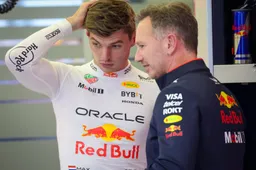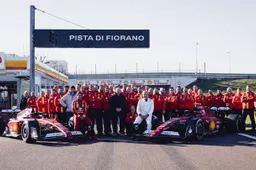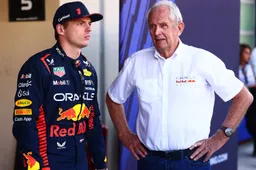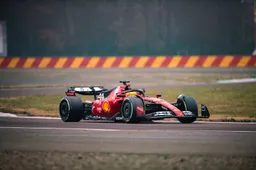Red Bull's 'Bold Move' Might 'Pay Off In Long-Term' Horner Believes
F1Tuesday, 02 January 2024 at 10:00

Red Bull Racing team principal said he believes Red Bull's bold move to produce its own power units is risky, but might pay off long-term.
Red Bull Racing team made a decision to produce its own PUs (power units) starting from the year 2026. The team undertook a very challenging task as Red Bull company has zero background in power until manufacturing as opposed to other teams on the grid.
Teams like Ferrari, Mercedes, Renault, or Audi (from 2026) are car manufacturing leaders who have all the expertise needed to build the most competitive power units.
Red Bull will use Honda PUs until the end of 2025, but then it will get no further support from the Japanese brand, which will then partner with Aston Martin.
The team from Milton Keynes at least partnered with American car manufacturing company Ford. Ford will provide the team with expertise in battery cell and electric motor technology, power unit control software, and analytics. Christian Horner told Sky Sports:
"We've invested in the UK along with our partners, together with Ford, to have the engine facility on campus."
While Red Bull works on developing the RB20 car for the next season, the team principal revealed that close to 500 people are already focusing purely on the 2026 power unit.
"Now we've got a factory, state-of-the-art facilities, and close to 500 people working on the 2026 engine."
Red Bull's advisor Helmut Marko disclosed the team has no plan B in case the project of building their own PU fails. This could have immense consequences on Red Bull's competitiveness from 2026 onwards.
There is obviously quite a significant risk for the Championship winning team, whose fans have great expectations. On the other hand, Horner believes it is a bet that will pay off.
"But going from nothing to taking on Mercedes, Ferrari, Honda, Renault and Audi, we're looking forward to it but it's a bold move, even though it's one we think will pay off in the long term."
POPULAR NEWS

Steiner Warns Red Bull: 2024 Performance Masked By Verstappen's Brilliance

Sainz Sr. Grateful For Ferrari's 'Fantastic Gesture' After Driver Switch

Marko Issues Honest Verdict On Verstappen's Potential Exit: 'You Have To Be Realistic'

Racing Bulls CEO Reveals What Verstappen's Personality Is Like Outside F1 Paddock

Magnussen Discusses 'Crazy' Thing That Separates Verstappen From Hamilton And Others

Hamilton: Driving Ferrari F1 Car For First Time 'One Of Best Feelings Of My Life'
Loading